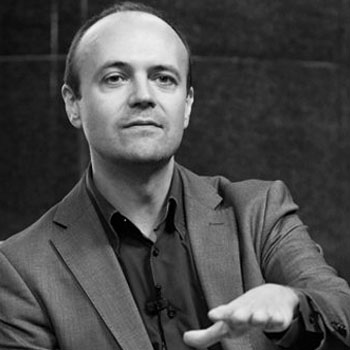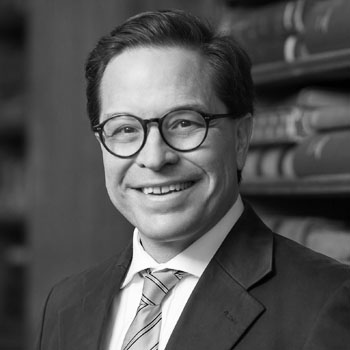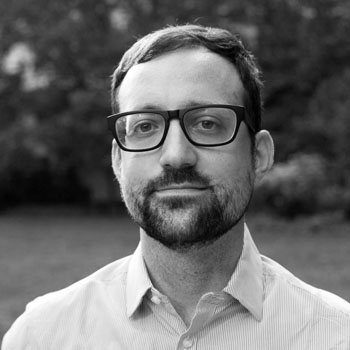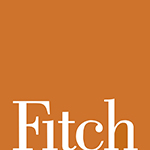YOU’RE INVITED: Meet the 2017 class of Fellows
The Trustees of the Fitch Foundation are delighted to announce the recipients of the 2017 James Marston Fitch Mid-Career Fellowship. Join us for a reception to congratulate Paul Kapp and Frampton Tolbert, and to learn more about their intriguing areas of study. We will also be joined by special guest speaker Jorge Otero-Pailos, Fitch Fellow (2010) and Director of Historic Preservation at Columbia University. All are welcome, though space is limited.
FITCH FELLOWS WELCOME RECEPTION
Wednesday, June 14th, from 6PM to 8PM
at the offices of
the J.M. Kaplan Fund
71 West 23rd Street, Suite 903
New York, NY 10010
Advance RSVP required;
email [email protected].
SPECIAL GUEST: Jorge Otero-Pailos
Director and Professor of Historic Preservation at Columbia University’s Graduate School of Architecture
Fitch Foundation Kress Fellow 2010
J orge Otero-Pailos works at the intersection of art, architecture and preservation. He is Director and Professor of Historic Preservation at Columbia University’s Graduate School of Architecture in New York.
orge Otero-Pailos works at the intersection of art, architecture and preservation. He is Director and Professor of Historic Preservation at Columbia University’s Graduate School of Architecture in New York.
His work has been commissioned and exhibited by major museums, foundations and biennials notably, the Artangel Trust, the 53rd Venice Art Biennial, Victoria and Albert Museum, Louis Vuitton Museum La Galerie, Thyssen-Bornemisza Art Contemporary, and the Yerba Buena Center for the Arts.
Mr. Otero-Pailos is the founder and editor of the journal Future Anterior, co-editor of Experimental Preservation (2016), author of Architecture’s Historical Turn (2010) and contributor to scholarly journals and books including the Oxford Encyclopedia of Aesthetics and Rem Koolhaas’ Preservation Is Overtaking Us (2014).
He is a member of the Academy of Arts and Sciences of Puerto Rico, the Academy of Science and Culture of Ibero-America, and has received awards from major art, architecture and preservation organizations including the 2012 the UNESCO Eminent Professional Award, the American Institute of Architects, the Kress Foundation, the Graham Foundation, the Fitch Foundation (2010), and the Canadian Center for Architecture.
Mr. Otero-Pailos studied architecture at Cornell University and holds a PhD from MIT, and was a founding faculty member of the School of Architecture at the Polytechnic University of Puerto Rico.
Learn more about Mr. Otero-Pailos.
MEET THE FELLOWS:
Paul Kapp
 Heritage and the Great Depression: How Historic Preservation Created the Old South
Heritage and the Great Depression: How Historic Preservation Created the Old South
During the Great Depression, architects, politicians, and entrepreneurial women in the Deep South collaborated to redefine the aging, dilapidated buildings of their cities and towns by designating them as historic landmarks. Seizing on an opportunity provided by New Deal programs, they did this not necessarily to preserve their ancestors’ legacies, but to improve their present and future economic status and to create— intentionally—a thriving new industry: what we know today as cultural tourism. This research and subsequent book will tell the story of this remarkable transformation and analyze its cultural significance. More about Paul Kapp.
Frampton Tolbert
 Queens Modern: The Architects
Queens Modern: The Architects
Queens Modern is the definitive case study of how high style mid-century modernism filtered down to the masses and defined the New York City borough of Queens. The borough is the largest geographically and, if independent, would be the fourth most populous city in the country. Yet its architecture, including its significant collection of regional mid-century architecture, remains unstudied and unappreciated. Queens Modern, the first examination of the borough’s modern heritage, seeks to address this longstanding discrepancy. More about Frampton Tolbert’s work.
ABOUT THE VENUE: The J.M. Kaplan Fund
The Fitch Foundation is delighted to be hosted, for its 2016 Fitch Fellows reception, by the J.M. Kaplan Fund. From breakthrough advocacy for the city’s homeless population to catalytic support for the High Line as a powerful public space, the J.M. Kaplan Fund has championed causes and coalitions that have made New York one of the world’s most socially and environmentally innovative places since 1945. Over its 70-year history, the Fund has propelled fledgling efforts concerning civil liberties, human rights, the arts, and the enhancement of the built and natural worlds. Today, the Fund is active across the United States and beyond, operating grant programs focusing on the environment, historic preservation, migration, and New York City. To continue its legacy of catalytic grant-making, in 2015 the Fund launched the J.M.K. Innovation Prize, seeking out visionary, early-stage innovations in the fields of cultural heritage, human rights, and the natural and built environments.
